He still sees them every day. The dead, the dying, the killer.
It's usually only a snippet. A man firing bullets into a helpless crowd as they kneel to pray, followed by the searing realisation he had been shot himself. Then, the horror of trying to shield his son from the spray of bullets, another bullet in his shoulder, his best friend's promise to help him, and, finally, his best friend's last words.
The flashbacks these days come during the most mundane of activities for Adeeb Sami. It’s mostly at times when he catches sight of the gnarled scar that now runs the length of his abdomen, or the other one that sits alongside it.
“I remember especially when I take shower,” Sami says when we meet him at his apartment in Al Ain. “I see my body again and the flashback happens and every morning when I have a shower I remember what happened … especially when I touch where the bullet entered my body.”
Almost 12 months on from the terror attacks in Christchurch that killed 51 people, Sami is clutching his prayer beads and reclining on a sofa, flanked by his wife, Sana Mullayounus, and his daughter, Heba. He's wearing a black T-shirt emblazoned with the face of a Maori warrior and the words "Ta Moko" (Maori tattoo art).
The juxtaposition of the two cultures, the beads and the sartorial nod to New Zealand, seem fitting for a Muslim engineering executive who splits his time between Al Ain and Christchurch. It's the roaring laughter and jokes that underscore the retelling of events from that day – March 15, 2019 – that are more difficult to comprehend.
Sami laughs about the five months he was off work due to his injuries, cracks jokes at the memory of what he said to his son in the mosque after he had been shot (“I told him to look after the family, because that’s what they say in the movies!”). He playfully muses over why it is that he had to leave Iraq only to be shot in New Zealand.
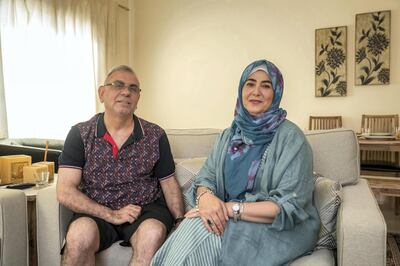
He listens again, with amusement, to the voice note Heba sent over WhatsApp when she heard her father was in hospital after being shot by a terrorist. To anyone else, it sounds like nothing but an eight-second-long blood-curdling scream, but Heba insists there are words in there.
None of this is a sign he’s lost his mind from the trauma. It’s simply that his whole life has been peppered with war and tragedy, and humour is how he’s learnt to get through it, he explains.
Physical scars remain but the mental ones run deeper
Sami had returned to Christchurch from Al Ain last year, the night before a 28-year-old Australian stormed Al Noor and Linwood mosques, killing 51 worshippers and injuring 49. Sami was inside Al Noor Mosque with his son, Ali, as the chaos unfolded. He shielded Ali with his own body to protect him, taking two bullets as he did so – one shattering his hip, the other in his shoulder. It was Ali's 23rd birthday.
Physically, what remains of that day for Sami, is two large scars that dissect his abdomen; one running 35 centimetres vertically, and one horizontal that measures about 10cm, from the colostomy bag. And then there’s the leftover shrapnel that’s still inside him, embedded in his hip. He still has to carry a special letter to inform airport staff that the metal is inside him, not on him. Mentally, the scars exist as those visual re-enactments of the day continue to reappear without warning.
Sami lost six close friends that day. His best friend, Abdelfattah Qasem, had been sitting directly to his left. After Sami was shot the first time, Qasem had rushed to his aid and promised to help him, before the shooter returned and shot him dead. His is a regular face in Sami’s flashbacks.
“We had a WhatsApp group of 23,” Sami says, “and we deleted six names. I am OK, but on Facebook – they always post what happened years ago, or a memory, so they keep posting pictures of friends I lost. So in the early morning when they post pictures of eight years ago of friends, I feel bad.”
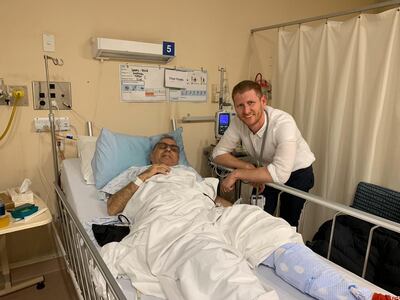
The past 12 months have been a chaotic mix of ups and downs. Sami returned to work to a hero's welcome in Al Ain. He had to head back to New Zealand for another operation in September to have his colostomy bag removed and to reattach his colon.
He performed Umrah in Saudi Arabia on New Year’s Eve. His daughter, Hamsa, got engaged to a Palestinian man living in Christchurch on New Year’s Day. All throughout, he’s been struggling to feel well, as the usually active sportsman has been too afraid to exercise.
'All our life we have had tragedy. So you have to find some reason to laugh'
And yet, he’s always maintained his humour.
After all, even the mosque attacks somewhat pale in comparison to what else he has seen in his life. “All our life we have had tragedy. So you have to find some reason to laugh. Maybe this helps us, helps me, helps Ali, to get over what happened.”
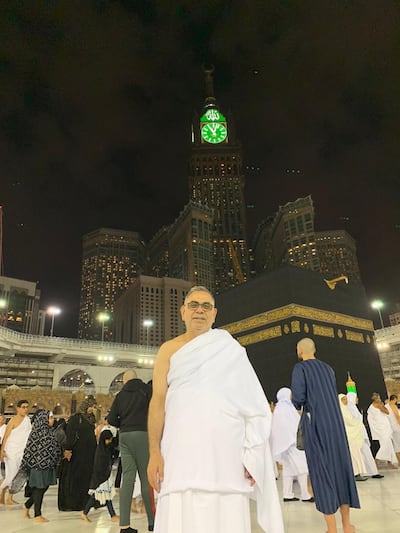
Sami recalls the First Battle of Al Faw in 1986, during the Iran-Iraq War, when he was working as an engineer in Iraq. "That night the sound of bombs didn't stop. After the daylight came ... I crossed the line between Iraq and Iran forces. I saw thousands of bodies that day.
"These things, like what happened in the mosque, I cannot forget, but you have to make comedy to get over it."
It’s a sentiment seemingly passed on to the rest of his family. Mullayounus laughs when she remembers fainting on the side of the road in Christchurch when she’d heard the news her husband had been taken to hospital. She’s not convinced the media pictures of her during the episode were entirely flattering. “Sometimes we laugh about it, sometimes we cry,” Mullayounus says, between chuckles. “Sometimes we laugh because we are crying.”
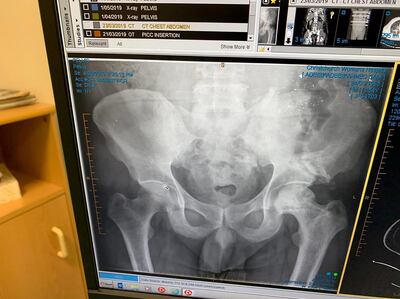
But the couple insist that regardless of what happened, Christchurch is now more home than it ever was. That's why, despite their best efforts, they could not convince Ali, who recently finished his studies in Christchurch in engineering, to move to the UAE for a higher salary and better job prospects.
“Personally, my connection with Christchurch has increased,” Sami says. “Now I want to go back to Christchurch. It’s a nice city to live regardless of what happened.
“Before the shooting, the Muslim community were divided by different groups related to their geographic locations. What happened unified the Muslim community.”
For many, the nightmares haven't stopped
It's a feeling that has seemingly reverberated across Christchurch's Muslim community in the past 12 months. Abdi Ibrahim, who escaped the shooting but lost his 4-year-old brother in the mosque, says Christchurch "is still my home", despite having left for Australia.
The Somalia national moved to Perth, where his two sisters live, a few months after the attacks, and has found work in the mining industry. But neither physical distance nor time has helped Ibrahim fully move on.
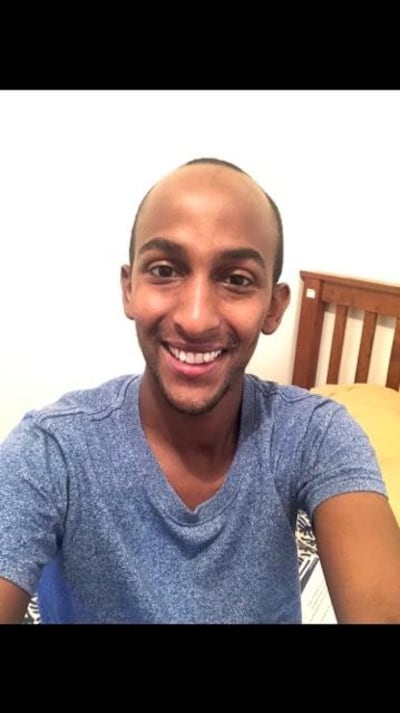
“Ever since it happened I’ve been constantly getting nightmares,” Ibrahim says. “Now and then I still see those memories of escaping that day and seeing my little brother as if he’s still there.
“The other day I had a dream of the police taking the shooter away into a military vehicle, helicopters everywhere.”
The terrorist is currently being held in isolation at New Zealand's only maximum security prison, Paremoremo, located north of Auckland. In June last year, he pleaded not guilty to 51 charges of murder, 40 charges of attempted murder, and one charge of engaging in a terrorist act. It was the first time someone in the country had been charged under the Terrorism Suppression Act.
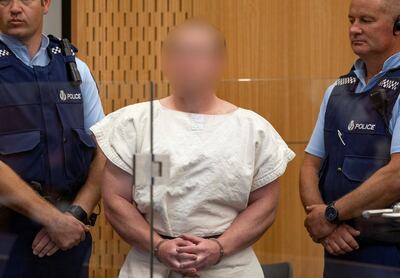
Scenes from the courtroom have caused consternation among the Muslim community in the months since, as the man appeared via video links with a smirk on his face and attempted to move his trial to the North Island. In August, New Zealand's corrections department admitted he had been communicating by post with other white supremacists from his jail cell.
He faces trial on Tuesday, June 2, and Ibrahim intends to fly back to be there for it.
'Every day I have tears. I’m trying to accept it, and to be patient, but I am struggling'
Janna Ezat will be attending, too. The calligraphy artist lost her son, Hussein Al-Umari, when he was gunned down trying to stop the shooter. The past year spent adjusting to life in the aftermath has been much harder for her than many others, she believes.
Ezat cuts a gaunt figure in recent photos posted to social media. She's lost a huge amount of weight in the past 12 months. If she looks like she's defeated, she says, it's because she is.
“Only God knows how I’m suffering. I thought after one year I would be OK, but it’s the opposite,” she says over the phone, her voice shaky. “Every day I have tears. I’m trying to accept it, and to be patient, but I am struggling. I’m not showing my sadness because I’m trying to support other people … I’m trying to be a good example. But with myself it’s different.”
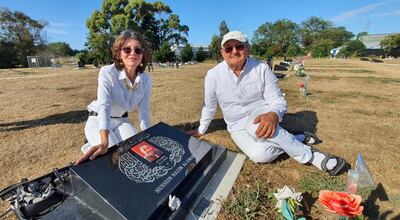
As countless media outlets around the world mark the anniversary with tributes, Ezat admits she has been overwhelmed by requests for comment. She has shrunk away from most of them and has stopped checking her Facebook messages.
The grieving process has been far more arduous than Ezat ever expected. She laments the fact people try to change the subject when she speaks of Hussein, or tell her to move on while she is trying to do the opposite, to keep his memory alive.
“I miss him. The house has become very silent,” she says.
“I’m relying on dreams and praying to God that I can see him in the dreams. I need another dream to recharge me for two months. I’m like a battery getting charged.”
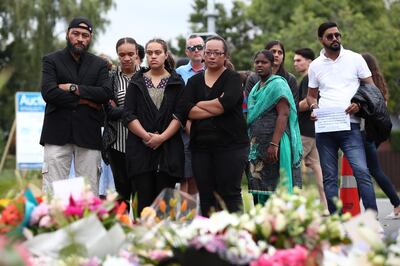
Ezat has recently returned to Christchurch after spending four months in her home town of Mosul, Iraq, where she was visiting family. She hadn't been back there since 2011, and was floored by the devastation. A harrowing video posted on Facebook portrayed the moment a distraught Ezat found her father's shattered headstone, which once proudly displayed a piece of her calligraphy. Friends and family helped her fix it, although it's not the same.
The ripple effect of her trip extended far beyond that. Ezat was stunned to find herself swamped by unsolicited meetings in the street from people who recognised her, and the flood of offers to speak at schools and other public places.
“People were coming to take photos and selfies with me, saying we are sorry about your loss, you are the mother of a very brave young Mosulian man and it’s a loss of the city. They said your loss is our loss.” She takes solace in those comments.
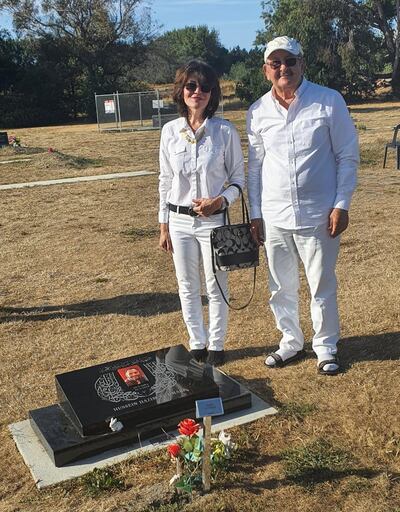
Ezat admits the final two months of her trip were traumatic due to family issues and she’s returned to Christchurch a shadow of herself. She says she is trying to eat, but continues to lose weight. And she is just so tired.
“Yesterday I was at BurgerFuel and I was sitting in the same place as I was just a couple of days before his death. I cry, and it releases me.
I need time, maybe years. How I’m going to survive, I don’t know.”
Why Christchurch is shirking the term 'resilient'
It’s not an anniversary she particularly wants to remember, but Ezat intends to spend Sunday, March 15, at Christchurch’s public memorial service, led by city mayor Lianne Dalziel. Security measures are expected to be high, after a terror threat was issued earlier in the month on an encrypted messaging app, accompanied by a photo of a masked man sitting in a car outside Al Noor Mosque. A 19-year-old was later arrested in association with the threat.
But it's the remembrance service itself that has caused a stir in the local Muslim community. Many have said it's not typical for Muslims to mark such anniversaries, while others acknowledge they already live with daily reminders.
After all, it's been a tough few weeks of tragic memorials for Christchurch. Only three weeks ago, on February 22, the city stood in silence to mark nine years since the devastating earthquakes that killed 185 people. It's an extraordinary amount of tragedy for one small city to deal with, so it would be easy to describe its residents as "resilient", but that's a term people have come to spurn.
Even Dalziel actively discourages people from using it.
“I don’t use the word ‘resilient’,” she says, “because my understanding of the word is that it is not a destination, it just simply describes a journey. I think people use the word because they want to reflect how much Christchurch people have been through. It is true that we have been through a lot and it doesn’t get easier because of prior experience, it just means that for a lot of people it simply adds further weight to what has been an incredible burden.”
These past 12 months in particular that have been a steep learning curve for Dalziel. She admits the attacks have had a profound effect on her both personally and professionally, and in some ways "there is no separation between the two".
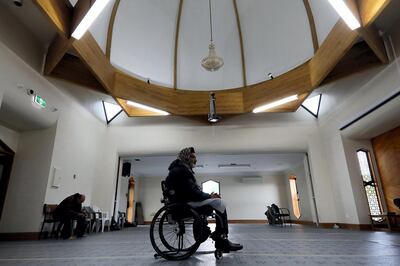
“It has led me to read a lot of material about what lies behind these terrorist attacks. I’ve read a lot about white supremacists and how they interact on the internet. I’ve read a lot about freedom of speech and the right to live one’s life without discrimination,” she explains.
“One thing that I have had to face up to for somebody who was born and raised here is that people who come from different backgrounds to me were subjected to a completely different life experience than I was, simply because of the colour of their skin. That has been a shock to me and I have been ashamed that I didn’t know.”
A city and mental health service pushed to the brink
The work is far from over for many of the city’s civic authorities. In some respects, it never will be. The Canterbury health system was already stretched to its limits due to a burgeoning mental health crisis before the attacks, a hangover from the earthquakes and ongoing aftershocks. The shooting has only exacerbated that.
"The treatment and management of those impacted by the mosque attacks continues," Canterbury District Health Board chief executive David Meates says. "More than 1,970 treatments having been provided to 114 people through to mid-February this year, and we had to defer more than 700 elective cases as a result of this event." Many victims were still receiving complex ongoing treatment in their own homes.
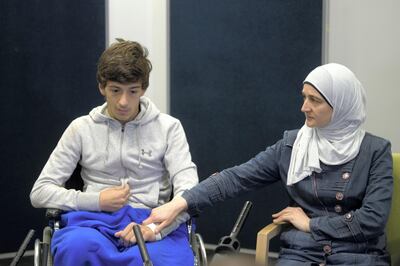
Meates is proud of how the health services have responded. Attack victims continue to be eligible for free doctor's consultations, and more than 1,600 have been provided in the past 10 months.
A Canterbury Well-being and Mental Health Recovery Plan has also been implemented, which means free doctor's visits, specialist mental health services for those seriously impacted, a Muslim health team to help people in their communities, access to Muslim psychologists and a spiritual advisor. Most importantly, he says, the credit lies with the hospital staff who were working that day.
'Heroic teamwork' was done that day
One of those people was Spencer Friese, an ex-US military soldier who was working as an orderly in Christchurch Women’s Hospital that day, when patients started coming in. The first victim he saw was Wasseim Alsati, who was begging him to find his 4-year-old daughter. Both father and daughter were shot three times.
Both of them recovered. Alsati, who was a barber and lost his job in the aftermath of the attacks, has since opened his own barbershop.
“Every day I think about that day and one of the things that comes to mind the most is the heroic teamwork that was done,” Friese says. “As I move patients around the hospital I remember the people who helped that day and I always ask them how they are.”
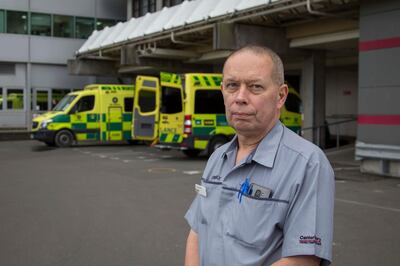
Although he hasn't been particularly adversely affected himself – perhaps due to his military background and previous work as a deputy sheriff in Oregon – he acknowledges that plenty are still suffering. And he believes he has at least learnt a lesson or two in the past 12 months.
"I am 60 years old and I believe over the years, you learn how to process things maybe better than younger people," he says.
"I had a trainer that day stop me and tell me to breathe. I remember that clearly and since then have taken things a lot more calmly and I am thinking things out more."
As for Sami, March 15 approaches this year as it does on any other year. There is no need to treat it as anything other than a day, he says. However, he will probably spend an extra hour praying for his friends, particularly for Qasem, and wondering if he will meet them again someday. “For me, I lost a lot of friends, so I am always thinking ‘What are they doing now?’ All of us are maybe searching for that answer to the question: What will happen after we lose our life?”
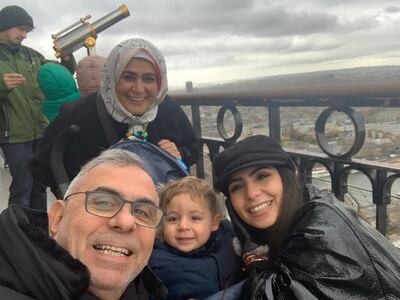
One thing he does know for certain is that he won’t be attending the terrorist’s trial. He says his presence won’t add anything to the proceedings, and he doesn’t want to feel more sorry for the man than he already does. “He lost his life, and for what? I have no feeling against him, I have no hate for him.
"There is a verse in the Quran, that if you are a real Muslim there is no hate in your heart, Wa al kazemina al ghayz wa al afeena an al nas. If you control your anger, Al kazemina al ghayz, you forgive people, al afeena an al nas.
“I always advise my friends, stop thinking about what happened, restart your life, because this is a good way to send a message to your community that you are OK.”




